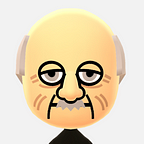Why Is Nintendo Removing those Mario Games from the Market? Here Is a Theory that Actually Makes Sense.
As promised, Nintendo is removing a bunch of games from the market. But why?
When people ask, Nintendo’s answers are vague–something about a one-shot celebration of Mario’s anniversary. That’s not a convincing explanation. OK, you can celebrate by releasing games… but removing them? And if it’s all about celebrating Mario, why is Nintendo also removing that early Fire Emblem game?
I have a theory. Disclaimer: I have no affiliation to Nintendo, so this theory might be utterly wrong. But if it turns out to be true, then we’d better prepare for a surprising future from Nintendo.
The 20-Years Switch?
First, let’s talk about Nintendo’s long-term strategy for the Switch.
Nintendo said that the Switch will have a long shelf life. Some analysts speculate that they might have bigger plans. Nintendo might decide not to replace the Switch at all–at least, not in a traditional way. Instead, they could keep the Switch around and refresh it periodically, like Apple does with the iPhone. Those refreshes might be called “Switch Pro”, or “Switch 2”, or something else. In any case, they’d stay compatible with most of the existing games.
That idea makes a lot of sense. The Switch is one of Nintendo’s all-time best selling consoles, with a huge library of games. Switch owners tend to buy a lot of those games. By dropping that library, Nintendo would give us an opportunity to move to other platforms. That’s what happened with the Wii U. Instead, the company could keep releasing upgraded Switch models, and grow its audience indefinitely. We would keep our games, so Nintendo would keep us.
If you think about it, Nintendo already took steps in the above direction. The Switch is already a family of products with periodic upgrades. The next logical leap is an Apple-style lineup of models, that are the gateway to a growing library of software. You know how Nintendo has been unusually hands-off with third-party Switch games? You know how people complain that the eShop is starting to resemble the App Store? No wonder: if this theory is right, Nintendo’s model is the App Store.
But this long-term strategy would also create a problem.
Too Much History?
Nintendo, more than any other gaming company, is all about history. They have the best catalog of classics in the industry. Many big releases on the Switch are updates or remakes of those classics.
Now consider that idea I mentioned before: a long term, gigantic library of games. What happens when that library contains too many classics? The value of those classics dilutes. It’s hard to create an event around a Mario re-release, when you already have twenty great Mario games on the same platform.
The problem with too many classics isn’t unique to Nintendo. Other companies have it–like Disney. If you’re old enough, you might remember when Disney re-released a classic every Christmas. Each of those re-releases was an event. Maybe you hadn’t watched “Sleeping Beauty” in ten years, and now you could share it with your kids! For a while, Disney applied that strategy to video releases as well. (It probably also considered it for Disney+, although it dropped the idea.)
So that’s my theory to explain why Nintendo is taking games off the market: like Disney, they want complete control on their products’ sales windows. They’re moving to get there,testing us along the way. They want to see how we react to a model where games get in and out of the eShop. Oh, and also physical shops, while they still exist.
If you’re skeptical about this theory, consider this fact: this isn’t the first time that Nintendo talks about “rotating games”. The original announcement of Nintendo Online seemed to hint at a rotating monthly selection of games. The public didn’t take it kindly, and Nintendo came out with a growing library of NES titles instead. But you can bet that they didn’t give up on that idea–not in a world where console generations are on their last leg. A stable library of games could turn a runaway success like the Switch into the king of the gaming hill for years.
Conclusion
If this theory is true, then we’re heading towards two things:
- A long-term, evolving family of Switch products. We won’t be getting the next Nintendo console–we’ll be getting the next Switch. It will support the new games, and stay compatible with most of the old ones.
- One large, growing eShop. As ever, the stars of this eShop will be Nintendo’s first-party games. Most of them will only be available for a limited time. Re-launches of Nintendo classics will be a big deal, and also time-limited. Nintendo will never run out of exciting re-release events.
Is this theory right? I don’t know. But at least, it does sound like a plausible reason to remove those Mario games from the market.
At least, more plausible than: “You know… celebration”.
